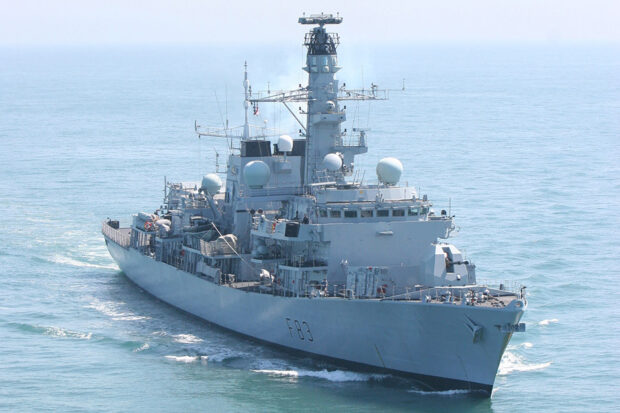This morning’s broadcast and newspaper headlines all lead with the Summer Budget. Politicians and business leaders offer their reactions to the measures introduced by the Chancellor yesterday, including the commitment to meet our NATO pledge to spend 2 per cent of GDP on defence for the rest of the decade.
Budget
The Telegraph, The Times, and Daily Mail all report that Britain will meet the NATO target of spending 2 per cent of national income on defence for the whole of this decade. The announcement by Chancellor George Osborne ends months of speculation, and follows intense lobbying from senior military figures. General Sir Nicholas Houghton, the Chief of the Defence Staff, says it will prevent the "managed decline" of Britain's military capability, and comes after a "big push" by Prime Minister. There is also speculation that the move means that Britain is preparing to step up bombing campaigns against ISIL.
In the Telegraph Lord Dannatt comments that the commitment sends a strong message to the UK’s enemies. In the same paper, it is reported that the Chancellor’s pledge represents a significant political victory for Michael Fallon, the Defence Secretary, who has fought hard behind the scenes to persuade the Treasury to provide adequate funding for our national defence.
The Financial Times suggests that hundreds of millions of pounds spent on the secret intelligence services will count towards the defence budget as part of Osborne's pledge to meet the NATO spending target.
Defence Secretary Michael Fallon said:
By increasing defence spending in real terms every year and meeting the NATO 2 per cent target for the rest of the decade, we are sending a strong message to both our allies and enemies.
It underlines the government’s commitment to defence and the national security of our country.
British infantry
In an expected story, The Guardian and Telegraph report that Lieutenant General Andrew Gregory, responsible for personnel at the MOD, has said that transgender people could serve in the British infantry in close combat roles. While the role of women in close combat is still under review, he says men who became women might be eligible for such roles.
The Telegraph article notes that The British military has won several equality accolades in recent times, including last year being named the world's second most gay-friendly military in the world by a think-tank, while the Ministry of Defence won the most improved employer award in Stonewall's Workplace Equality Index. Our position is below.
An MOD spokesperson said:
The review process into women in combat roles is ongoing: no decisions have been made and so any suggestion to the contrary is inaccurate. It would be wrong for the department to comment further at this stage.
Migrant crisis
The main role of the Royal Navy ship leading Britain's contribution to efforts in the Mediterranean is not search and rescue, but to gather intelligence on people smugglers, says immigration minister James Brokenshire according to The Guardian. He confirms that the UK's efforts have been scaled back since the withdrawal of HMS Bulwark.
Our previous announcement of the return of HMS Bulwark from the Mediterranean, and her replacement by HMS Enterprise, can be found here.
Tunisia
The Telegraph and The Times report that Tunisia's government is constructing a wall along its eastern border in an attempt to prevent citizens from travelling to jihadist training camps in Libya. Just two weeks after an Islamic State-inspired gunman killed 38 tourists at a beachfront resort, Tunisia is grappling with the rising threat of Islamist militancy in its cities, as well as along its western border with Algeria.
ISIL
The Telegraph reports that the US is training just 60 Syrian rebels to fight ISIL. It is well short of the 5,400 the Pentagon had outlined as the core of its pro-western, anti-regime force.The figure was given by Ashton Carter, the US defence secretary, as he addressed questions from the Senate’s armed forces committee on the Obama administration’s policy on the Middle East.
Srebrenica genocide
The Guardian and The Telegraph report that Russia has vetoed a British-drafted United Nations resolution condemning the 1995 Srebrenica massacre as a "crime of genocide".
The Foreign Secretary, Philip Hammond, lead condemnation of the Russian vote saying: "The failure to adopt this resolution is a snub to the families of the victims and the survivors of Srebrenica. True reconciliation requires facing up to the realities of the past by all sides and determination to learn the lessons for the future.”
Image of the Day

Follow us on Twitter and don’t forget to sign up for email alerts.
